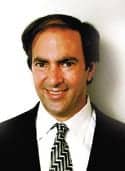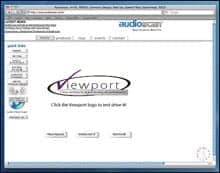
For Becky Morris, hearing instruments form the hub of the hearing loss treatment wheel. Radiating off that hub are a myriad number of spokes supporting this essential audiological tool. Morris, president of the 11-year-old Effective Communication Solutions Inc, Independence, Ky, has devoted her career and business to supporting the hearing instrument by distributing assistive listening devices (ALDs) to audiology practices around the country. “Our goal is to help professionals use the power of ALDs to maximize [their patients’] hearing aid use and satisfaction,” says Morris.
According to Morris, ALDs are a powerful adjunct to hearing instruments. “They help people live safely and independently,” she says. “And help them maintain their employment.” Hearing instruments can handle about 95% of the hearing needs of most patients. It is that 5% gap that Morris is trying to help eliminate with the ALDs she provides.
Inspiration
The inspiration for the company came from the work Morris does conducting communication assessments for vocational rehabilitation counselors who use and choose ALDs for their patients to help them stay at their jobs. It was while doing these assessments that Morris learned about ALDs. However, she found that many hearing professionals did not carry ALDs for a variety of reasons. “For 3 years, I asked audiologists and dispensers, ‘Why don’t you sell ALDs?’ The responses I got were the standard ‘too busy, [too much] inventory, or too costly,’ which are all valid reasons,” she says. “That’s when we designed our signature program to overcome those obstacles.”
The advantage of working with Effective Communication Solutions is that audiology practices do not have to invest in or carry an inventory of ALDs. The company’s No Fuss ALD Program offers several levels of involvement for audiology practices, based on their needs. The traditional dealer program has practices purchasing products from Effective Communication Solutions for resale. The next level has the practice work directly with the company, having patients referred to Effective Communication Solutions, which then provides the ALD to the patient. The next level is a patient reporting service in which the referred patient’s purchase will be reported to the practice. With that program, the practice participates in profit sharing. The fourth level is an online store feature on the practice’s Web site. The online store is completely managed and all orders fulfilled by Effective Communication Solutions. There is also profit sharing with the online store. “The levels of services are designed to meet the obstacles that professionals face in incorporating ALDs into their practice,” says Morris.
Effective Communication Solutions focuses all its support efforts on professionals only. “[Our company] doesn’t market to consumers. We do work with professionals’ clients—providing direct services,” she says. “But our focus is to support the professionals.”
Though the company has worked almost exclusively with professionals since its inception, Effective Communication Solutions has broadened its client services to include audiologists. “We have no plans to dispense hearing aids; that’s not our thing,” she says. “We do ALDs so others don’t have to.”
Specialized Distribution
Effective Communication Solutions distributes all the major assistive devices, such as telephones and alarm clocks, but specializes in amplified stethoscopes and FM systems. Morris adds that there have been some requests that she also carry hearing aid accessories, but she has decided against doing this—to align hearing aid accessories with the dispenser.
Morris admits that ALDs are not a big profit center for audiologists, but that offering them has other benefits for a practice. “Not many practices have enough business to create a profit center from [ALDs] to speak of. We all know that’s one of the obstacles,” she says. “But the intangible value or cost when your patients aren’t getting information [about ALDs] from you is high. They don’t have to get the equipment from you, but they should get the information from you. And I think a lot of practices miss the mark on that. So our services are primarily to help you provide that intangible of providing reliable resources.”
In addition to distributing ALDs, Morris also offers support to her clients. This includes helping with challenging cases and offering additional technical training.
Education and training are not restricted to the audiologist and their staff. Morris also provides materials, such as brochures and posters, to help educate end users. “Some people put [the poster] either on a door in their office or on the outside of the testing booth where the family member is,” says Morris. “[As for the brochures] there is one that’s full-color of the most popular devices, and another that answers the general questions and is designed to show that solutions exist and generate some interest.”
Leadership Role
Morris’ work is not just confined to distributing ALDs. She has also taken a leadership role, making presentations about the benefits of ALDs to professional organizations. “I am hired by state agencies to train their counselors on ALDs,” she says. “Counselors expected their audiologists as hearing professionals to know and recommend technology and found that many could not do so. I realized that hearing health care professionals also needed training and exposure to ALDs and began working in this industry.”
Morris continues, “I’m now frequently asked to present workshops and am thrilled that people learn and can be motivated from it—it’s a wonderful thing. ALDs are becoming popular again, and I’m hoping our No-Fuss ALD Program can help professionals remove the barriers to working with ALDs.”
It is not only helping end users get the most out of their hearing instruments that is a sign of success for Morris. There is another measure she uses. “Professionals who have wanted to promote ALDs, but not found an effective way to do so, most often find our services appealing,” she says. “When they say, ‘This program works for me,’ I know that I’ve done my job.”
Chris Wolski is associate editor of Hearing Products Report.




